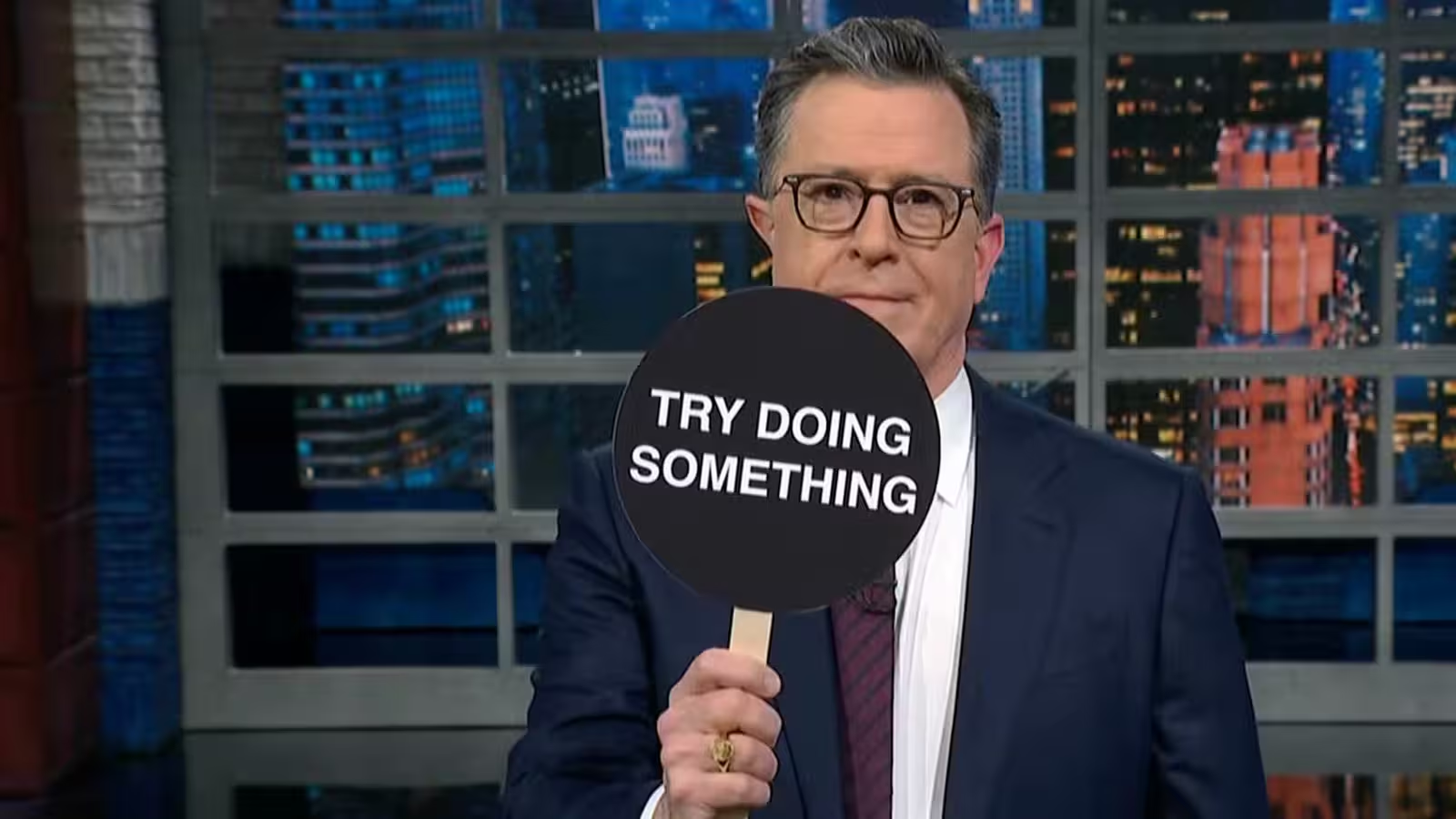6 Minutes
Introduction: A Late-Night Shakeup That Reverberated Through TV
When CBS announced the end of The Late Show franchise in 2026, the television world bristled. The decision — framed by executives as a financial restructuring tied to corporate mergers — came amid controversy, speculation and a high-profile legal settlement involving CBS’ parent company. For fans of late-night TV and entertainment news, the most urgent question is simple: where does Stephen Colbert go from here, and can streaming platforms like Netflix or HBO revive a cultural institution rather than let it fade?
The Context: Cancellation, Merger and Backlash
CBS’ decision to cancel The Late Show With Stephen Colbert followed the network’s parent company announcing a merger with Skydance and settling a $16 million lawsuit with a former president. The official line named financial necessity; critics and viewers pointed to timing and politics. The cancellation galvanized late-night audiences — particularly because ratings data showed Colbert’s show remained a powerhouse in the 11:35pm slot.
Ratings Reality
According to industry tracker LateNighter, The Late Show posted the highest viewership among competitors during the second quarter of 2025 and was unique among several peers in actually growing its audience from Q1 to Q2. That upward momentum makes the cancellation feel counterintuitive to many analysts and fans who track TV ratings, streaming trends, and cultural influence.

Plot Summary: What Does ‘Saving The Late Show’ Actually Mean?
When we talk about “saving” The Late Show, we aren’t necessarily demanding an identical broadcast recreation on linear TV. The essence of the show — Colbert’s mix of monologue, political satire, celebrity interviews, and cultural commentary — can be reimagined for streaming. Fans will get more than nostalgia: they want a modern late-night format that fits global on-demand viewing habits while retaining the topical bite that makes Colbert essential to contemporary media.
Colbert’s Current Projects and Cameos
Stephen Colbert already has a lifeline in scripted television: he will guest-star on the series Elsbeth as a fictional host, Scotty Bristol. That appearance demonstrates two things: Colbert’s continued appeal as a late-night persona, and the creative flexibility of placing his voice in different formats — from network studios to serialized storytelling.
Cast and Crew: Who Would Be Involved in a Streaming Revival?
A streaming revival would hinge on more than the host. Expect familiar names from Colbert’s Late Show writing staff, producing partners and musical director to be part of any transition. On the network side, executives like Paramount co-CEO George Cheeks shaped the cancellation narrative; on the creative side, collaborators such as producers who helped build The Colbert Report and Late Show would likely be invited to craft a new format tailored to Netflix, HBO or another platform.
Talent Landscape
Other late-night talents also factor into the ecosystem. David Letterman’s successful Netflix series, My Next Guest Needs No Introduction, proved legacy late-night hosts can thrive on streaming. John Oliver’s Last Week Tonight — an HBO property that has earned numerous Emmy Awards — shows how distinct editorial voices can flourish outside traditional networks, making crossovers and shared network homes intriguing possibilities.
Production Details: Live, Pre-Taped or Hybrid?
One of the core production decisions will be format. Traditional late-night shows air live or near-live nightly; streaming platforms have experimented with pre-taped seasons. Netflix’s The Break With Michelle Wolf (2018) adopted a pre-produced model with satirical elements tailored to bingeable, evergreen viewing. Conversely, Netflix’s recent forays into live programming and HBO’s dual release strategies (linear plus streaming) illustrate hybrid paths.
Why Streaming Could Work Better
Streaming allows for flexible runtimes, global distribution, and a mix of live and pre-taped segments. For political satire and entertainment journalism, that flexibility can mean deeper reporting segments, higher production values, and special-event live broadcasts — all while reaching viewers who now consume talk shows via on-demand platforms, social clips, and international feeds.
.avif)
Critical Reception and Industry Signals
Critics and industry observers have debated CBS’ call, with many pointing to The Late Show’s robust ratings and cultural relevance. Comparative metrics suggest Colbert outperformed several contemporaries in raw viewership at key times. HBO’s Last Week Tonight has amassed critical acclaim and multiple Emmys, while Netflix has garnered awards and nominations for signature talk and interview series — evidence that quality late-night content can thrive on premium streaming services.
What Critics and Audiences Are Saying
Among late-night hosts and entertainment commentators, there’s a shared sentiment: Colbert’s comedic voice and journalistic instincts are too valuable to disappear from television. Fans clamoring on social media and industry insiders in TV and film circles see a streaming reboot as both commercially viable and culturally necessary.
Personal Take: Why Colbert Belongs on Streaming
From a creative standpoint, Stephen Colbert’s brand of late-night is perfect for modern platforms. Streaming can preserve his political comedy and interview skills while allowing experimental formats — serialized political investigations, long-form interviews similar to Letterman’s Netflix approach, and live specials that capture breaking news moments. For cinephiles and series fans, this could be one of the most exciting intersections of late-night TV and streaming-era storytelling.
Conclusion: Two Unexpected Saviors
Netflix and HBO stand out as the most likely saviors. Netflix brings a global audience and a track record of rethinking talk shows, while HBO offers prestige, Emmy-winning editorial models and a successful streaming/linear hybrid. Either platform could reimagine Colbert’s late-night voice for a new era — preserving the show’s cultural impact while updating its production and distribution model for worldwide streaming audiences.
For lovers of movies, TV series, and the broader arts, this moment is more than a corporate shuffle: it’s a chance to reshape late-night entertainment. Whether it’s a new streaming talk show, a limited investigative series, or a hybrid live/pre-taped format, Stephen Colbert’s talent deserves a home that plays to the strengths of modern television and streaming storytelling.
Sources and industry reporting referenced: LateNighter, The Late Show With Stephen Colbert social channels and relevant entertainment coverage.
Source: screenrant



Leave a Comment